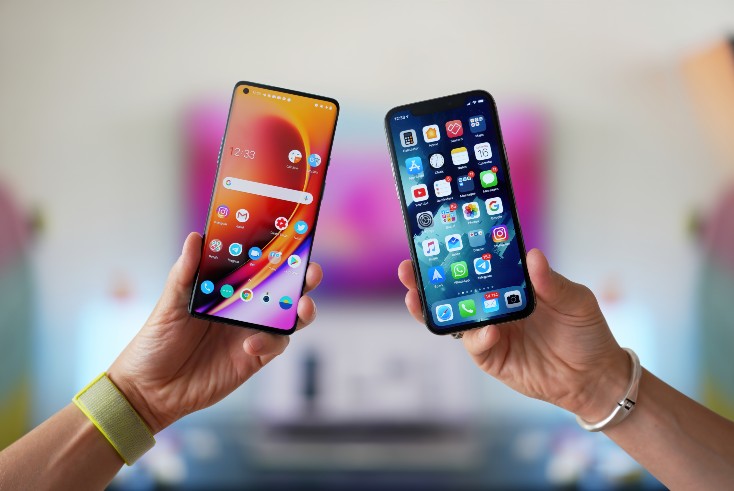Are advertisers over-indexing on Android vs iOS?

Analysis
“This is a big WTF.”
In a LinkedIn post this week, Chuck Lapointe, CEO of Toronto-based Narcity Media Group, pointed to what he saw as a major disconnect between programmatic buying strategies and reality.
Sharing his company’s ad exchange impressions alongside their average revenue per 1,000 ad impressions (defined as eCPM) for both iPhone and Android users, the data showed that the average Android eCPM was more than double that of iPhones.
This is despite, as Lapointe pointed out, the fact that iOS has a higher market share in the UK, US and Canada, and generally its users spend more than Android ones.
He asked: “In what industry, apart of the programmatic media complex, do we value users that spend and engage less over 150% higher than users with higher spend and engagement?”
‘Vast majority of bots are Android and Chrome’
Other industry figures confirmed that they saw a similar phenomenon of under-investment in iOS and Apple’s browser, Safari.
Among them was ad fraud specialist Dr Augustine Fou, who penned a Substack post three years ago on how iOS is not only cheaper but also accounts for most real clicks on programmatic ads.
“Marketers […] are bidding less on traffic without IDs because they think that there is less targeting and reduced ability to track outcomes,” Fou wrote in his post, referring to Apple’s relative lack of user tracking under its then-new app tracking transparency (ATT) policy.
“Because they avoid bidding on iOS or bid lower for iOS devices, the CPMs for iOS devices are far less than the CPMs for Android and desktop web (while third-party cookies remain in effect).”
Apple’s ATT policy has made ad buying less convenient and performance less measurable on iOS devices. On the other hand, Google dominates the digital advertising market through its Google Ads platform and its continued use of third-party cookies has attracted ongoing investment. So it follows that fewer advertisers have bought on iOS and Safari.
However, the majority of valid engagement with ads, according to Fou, comes from iOS devices.
“Ads shown to iOS users account for the majority of human clicks, despite the lack of cookies and identifiers,” Fou told The Media Leader. “Keep in mind that bots love to pretend to be Android and Chrome, because they can earn higher CPMs than if they pretended to be iOS. So, by far, the vast majority of bots are Android and Chrome.”
Google did not respond to a request for comment.
Slow deprecation
Jonathan Harrison, head of digital strategy at the7stars, told The Media Leader that the discrepancy is something the agency is aware of in the UK market.
“It comes down to measurement and, sometimes, a lack of understanding really where your automated tech is optimising towards,” he explained.
“It’s also something that’s going to be even more apparent this year as ‘cookieless’ rolls out more fully and advertisers start to see dips in their performance.”
Whereas Safari has blocked third-party cookies since 2020, Google has repeatedly delayed cookie deprecation on Chrome. In January, the company finally began deprecating cookies for 1% of users, with continued deprecation expected throughout 2024.
So it may be that, through Google’s deprecation of cookies, some of Android’s relative advantage over iOS could therefore decline. But, in an exchange with The Media Leader, Lapointe expressed doubt over any such erosion of Google’s positioning.
He said: “I don’t think [cookie deprecation] will have much impact, because I think Google will figure out a way to make the spend work within their ecosystem.”




